By Zeena Johar, President, ICTPH
and Prof. Ramesh Raghavan, Brown School, Washington University in St. Louis
Late in 2010, individuals from ICTPH and the Brown School at Washington University in St. Louis began exploring the idea of co-teaching a course. In the summer of 2011, 14 students arrived in Chennai to spend their summer with ICTPH, here in Thanjavur as the part of the School’s first ever off-campus three credit course.
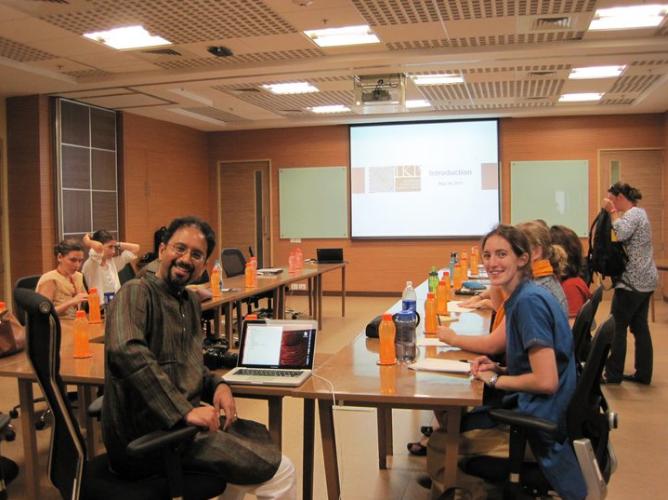 Orientation of the student cohort at IFMR, Trust Office in Chennai before their departure for the SughaVazhvu field site in Thanjavur, Tamil Nadu
Orientation of the student cohort at IFMR, Trust Office in Chennai before their departure for the SughaVazhvu field site in Thanjavur, Tamil Nadu
The overall purpose of this course was for students to develop and propose a plan to implement household- and community-level interventions that could mitigate public health challenges faced by the communities located in SughaVazhvu Healthcare’s field practice areas. For ICTPH this was a novel foray into pedagogy. For the Brown School, this was the first time that transdisciplinary problem solving – the motivating and organizing principle of the School’s Master of Public Health (MPH) program – was operationalized and integrated into an overseas course.
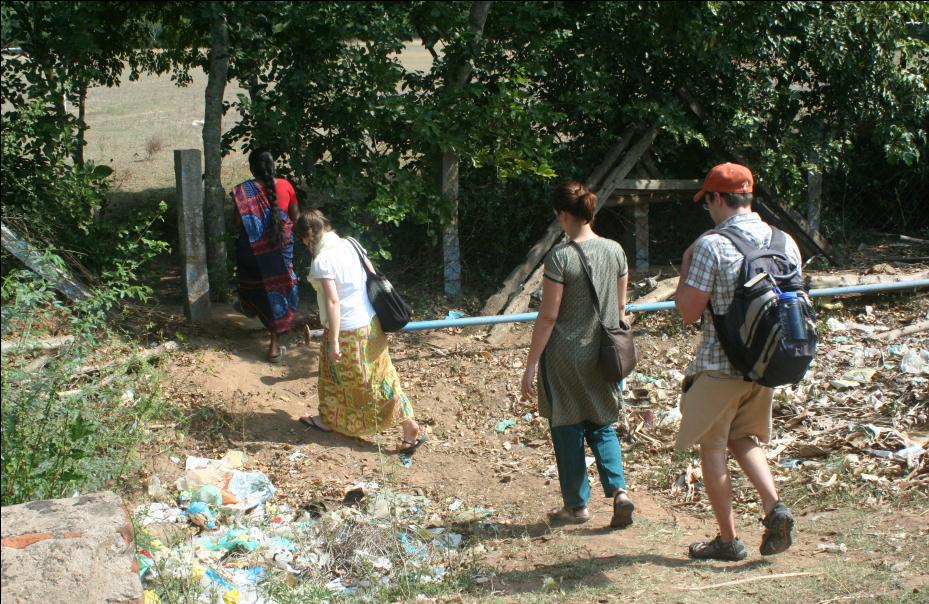 Field visits to the SughaVazhvu field sites, accompanied by SughaVazhvu staff members
Field visits to the SughaVazhvu field sites, accompanied by SughaVazhvu staff members
Through the 8 weeks that this course lasted, students were tasked with solving five dominant public health challenges – previously identified by ICTPH – that were facing these rural communities. These included high rates of cardiovascular diseases, incidence of diarrheal diseases especially among the young, challenges in assuring maternal and child health, increased rates of oral cancer, and challenges with oral health service delivery. Students worked collaboratively with Brown School faculty, ICTPH staff, SughaVazhvu Healthcare’s community health workers, and community residents to first identify the determinants of these challenges, develop household- or community-level interventions to address these determinants, develop a plan to implement these interventions, and propose a plan to evaluate the effectiveness of these interventions.
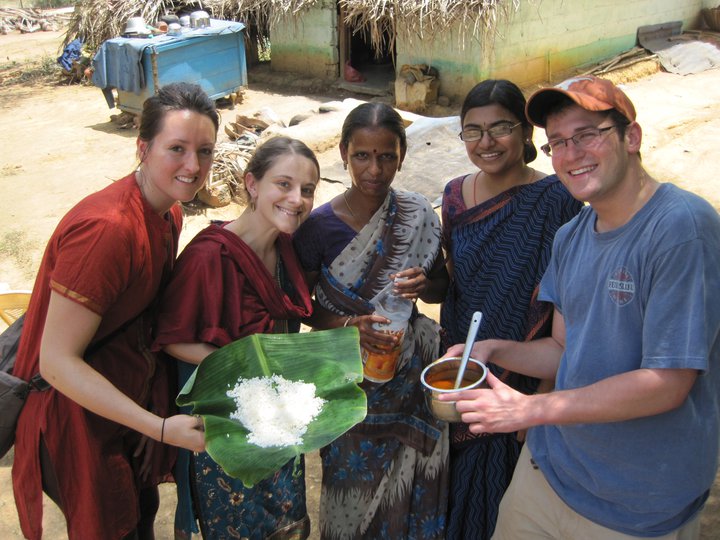 Field observation exercises – Better understanding of local practices, to adapt interventions towards higher contextual relevance and acceptance
Field observation exercises – Better understanding of local practices, to adapt interventions towards higher contextual relevance and acceptance
This was achieved through lectures, dialectic discussions with faculty and ICTPH personnel, team-based problem solving, structured visits to field practice areas, shadowing of village health workers and interactions with various community residents. Course activities commenced with a set of orientation sessions in St. Louis; the purpose of these activities was not only pedagogical, but also logistical. Staff from the Brown School’s international programs office facilitated visas, travel documents, and provided information on the health and safety issues involved with working in rural India.
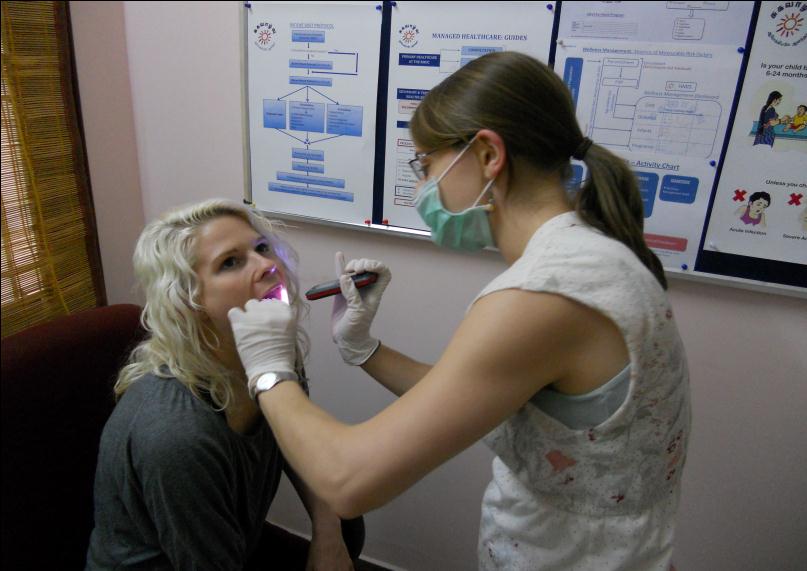 Oral Health Intervention – Skills Laboratory Session
Oral Health Intervention – Skills Laboratory Session
Upon arrival in India, students spent the first week of the course in Chennai. Student teams were introduced to their ICTPH mentor who had specific expertise in the topic on which a team would spend the next two months working. Students were then transported to Thanjavur. Didactic and discussion sessions were held at ICTPH’s facilities in Thanjavur, and were focused around modules for each of the public health challenges faced by these communities. Each module was designed to be integrated, with an instructional component, a skills laboratory, and a visit to a field practice area where the effects and determinants of the five public health challenges could be witnessed directly.
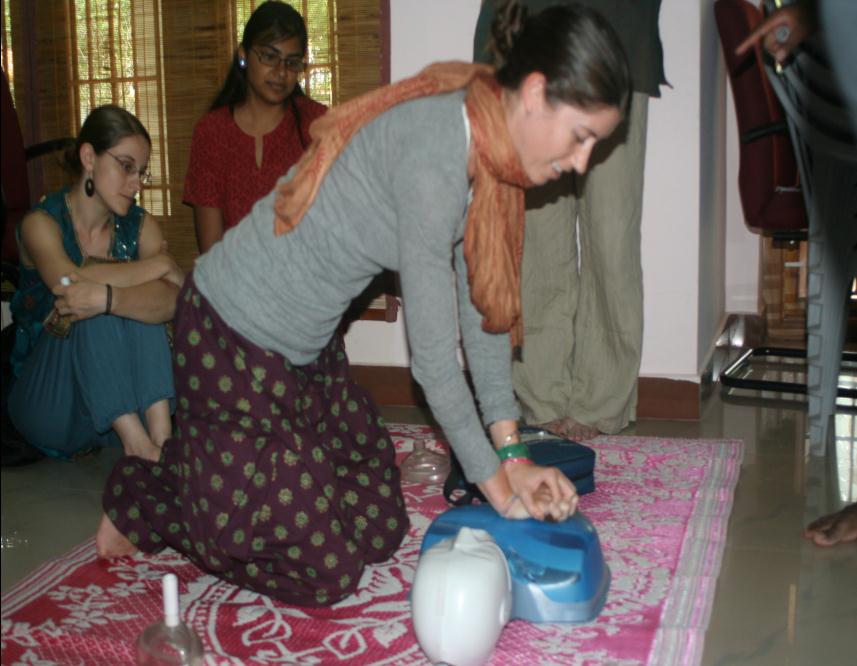 Cardio-pulmonary resuscitation (CPR) training session as a part of their Basic Life Support, certificate training conducted by TACT Academy for Clinical Training in Chennai
Cardio-pulmonary resuscitation (CPR) training session as a part of their Basic Life Support, certificate training conducted by TACT Academy for Clinical Training in Chennai
Over the eight weeks, students learned to work successfully in an international public health environment, understanding the social ecologies and contextual available health infrastructure, and designing their health interventions within the constraints imposed by these contexts. A field-based approach allowed for participation of local stakeholders, facilitated by SughaVazhvu Healthcare’s field personnel. Engaging with interdisciplinary and transnational teams, transcending language barriers, and bridging cultural differences in conceptualizations of disease and arriving at an appropriate solution offered to students a ‘real’ world experience.
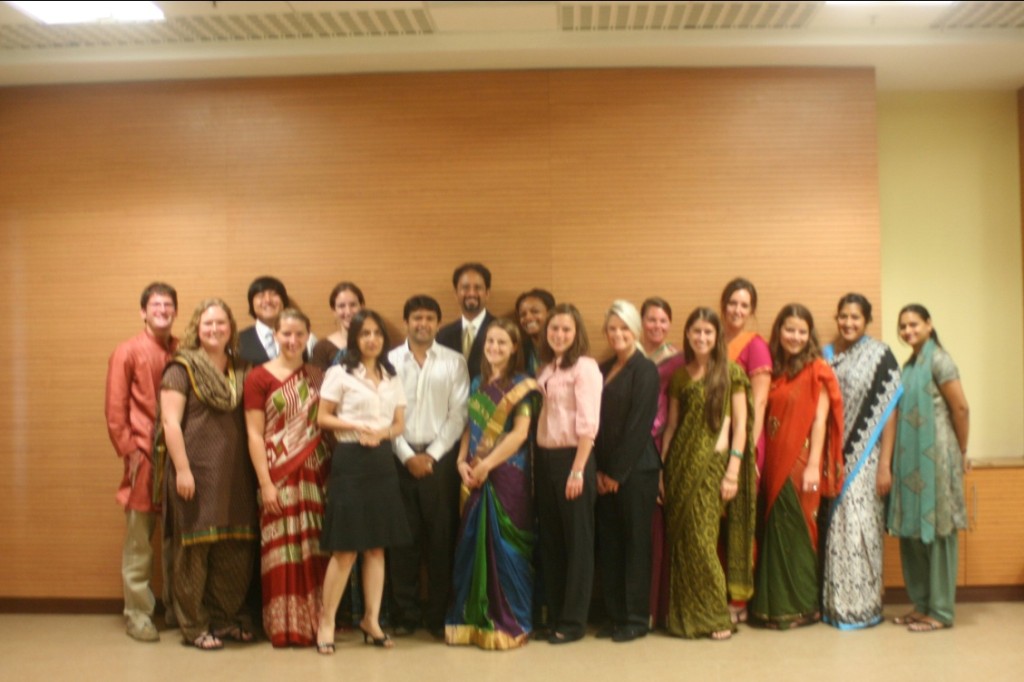 The closing session, sharing learning and experiences with the larger audience at IFMR Trust Office in Chennai
The closing session, sharing learning and experiences with the larger audience at IFMR Trust Office in Chennai
Such collaborative platforms that bring together academic institutes and field partners in an in vivo situation are, we believe, the best way to teach and do global public health. Through such bidirectional exchanges, ICTPH hopes to institute such course work at its field site, which will allow international public health experts to participate in India’s transforming health sector.
We hope you enjoy reading the work of our students!


Leave a Reply
Be the First to Comment!